Story highlights
Over 35,000 people detained and 17,000 arrested since July 15 coup attempt
State crackdown has also seen at least 81,000 fired or suspended
As Turkey returns to some degree of normality following the July 15 coup attempt, which claimed the lives of at least 240 people and 40 coup plotters, the government has wasted little time in their response.
The country’s Prime Minister Binali Yildirim quickly made public addresses denouncing the failed military uprising. While President Recep Tayyip Erdogan vowed to seek revenge for “a clear crime of treason” in an exclusive interview with CNN.
The reassertion of power has been swift with mass arrests, detentions and dismissals of suspected coup plotters. Here’s a look at the numbers so far:
35,022 – Number of people detained
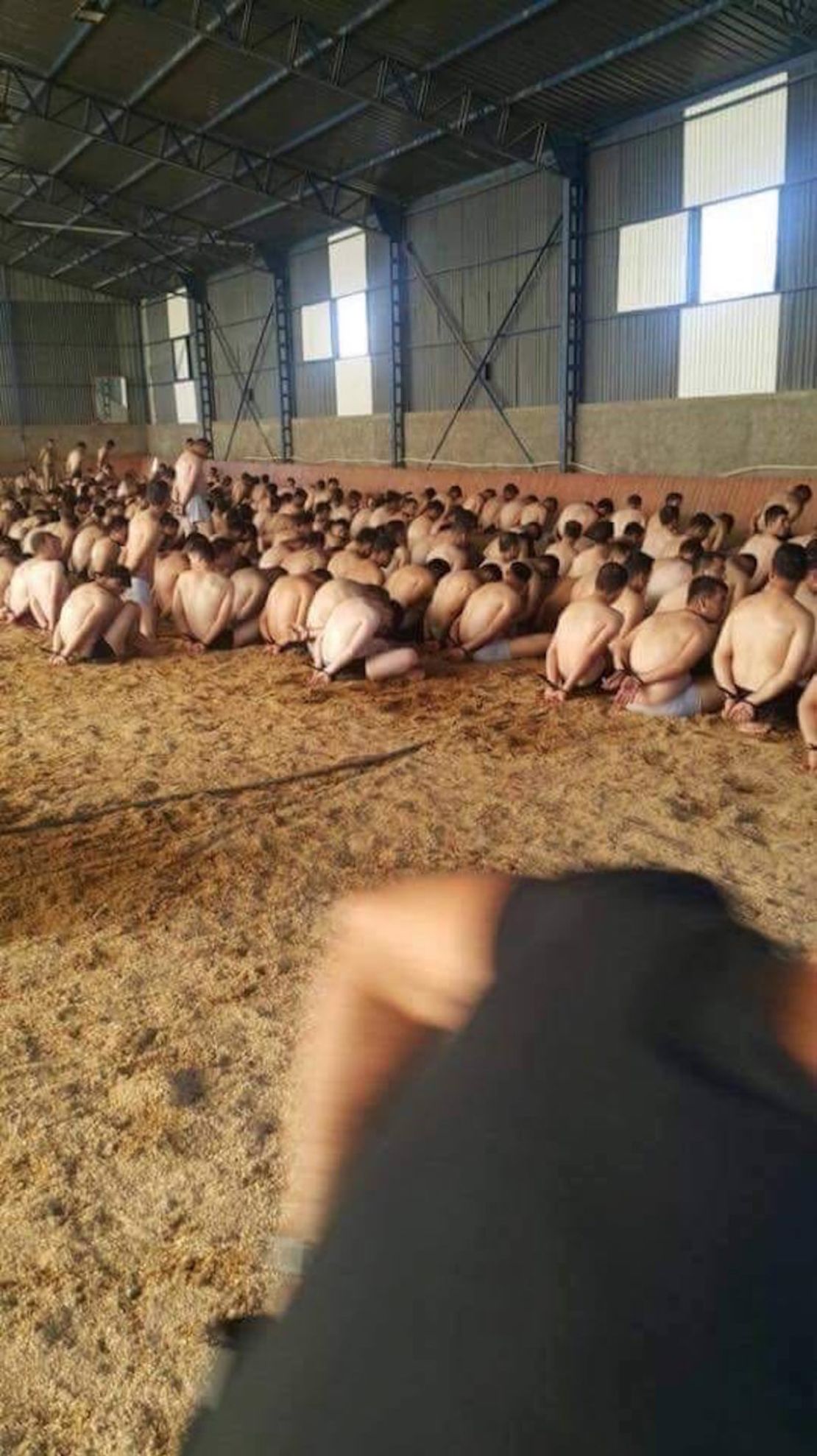
The purge of those alleged to have been involved in the coup has been far-wide and sweeping. Approximately 35,022 people have been detained in connection to the failed coup earlier this month, a senior official told to reporters. Of those, 11,597 detainees have since been released while 5,685 people remain in custody but have yet to go before a judge.
Previously Turkey’s interior minister Efkan Ala said the majority of the detentions have been military – 10,012 people (including 178 generals), state broadcaster TRT reported.
Related: Fate of 1,600 conscripts hangs in the balance
17,740 – Number of people arrested
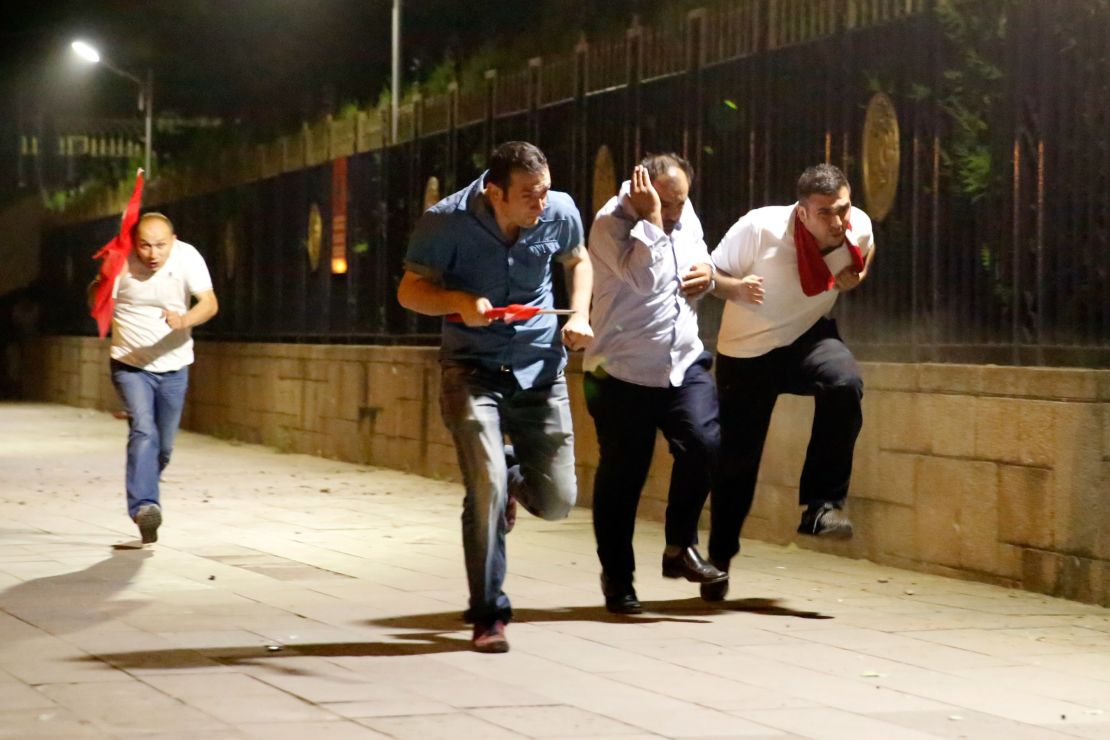
In addition to the large number of detentions, around 17,740 people have been arrested on specific charges, the official added.
Turkish authorities have stripped the country’s security forces, arresting at least 5,226 military personnel, and seizing as many as 151 generals and admirals – a third of the general-rank command of the Turkish military.
Additional arrests include 1,684 prosecutors and judges and 1,019 members of the police force.
1,200 troops have since been released, the government said.
The country’s PM has also told state-run news agency Andalou of its intentions to disband Turkey’s elite presidential guard unit.
About 1.5% of the army were involved in the July 15 coup attempt according to a statement made by the Turkish Armed Forces, TRT reported Wednesday.
The statement also broke down the use of military inventory used by coup plotters including:
- 35 jets
- 37 helicopters
- 246 armed vehicles
- 3 ships
- 3,992 weapons
Opinion: Why West must embrace Turkey
89 – Arrest warrants for journalists
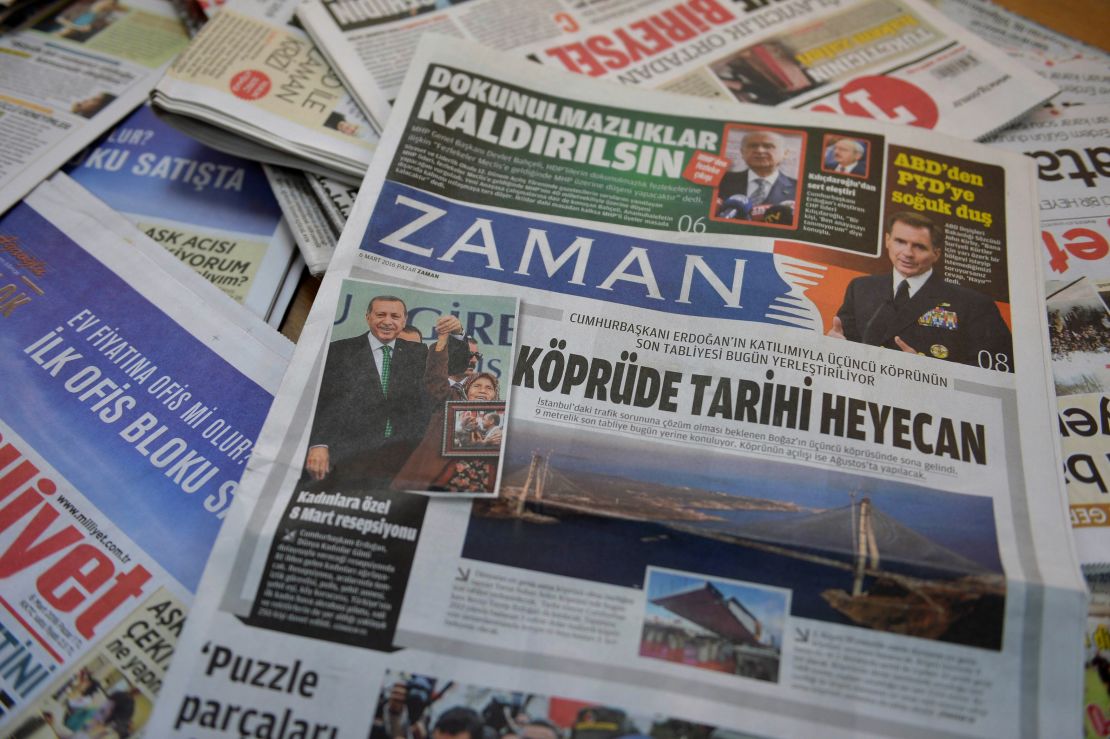
Turkish authorities have issued 47 new arrest warrants for journalists, managers and former staff of the Zaman newspaper, the government said Wednesday. An official from Erdogan’s office called the newspaper “the Gulen Movement’s flagship media organization.”
CNN has reached out to Zaman for comment but they had not responded by time of publishing.
This is the latest crackdown on individuals suspected of having ties to alleged coup plotters including cleric Fethullah Gulen, whom Erdogan has repeated cited as the mastermind behind the coup attempt on July 15. Gulen lives in self-imposed exile in the U.S. and has denied any involvement.
“The prosecutors aren’t interested in what individual columnists wrote or said. At this point, the reasoning is that prominent employees of Zaman are likely to have intimate knowledge of the Gulen network and as such could benefit the investigation,” the official said.
Previously, 42 warrants were issued on similar grounds Tuesday. A total of 89 warrants have been issued for journalists in the country to date. Meanwhile, Turkey’s broadcasting authority has revoked licenses for 24 radio and television companies believed to have links to Gulen, Anadolu has reported.
Related: How people in Turkey feel about failed coup
At least 81,494 – Number of people fired or suspended
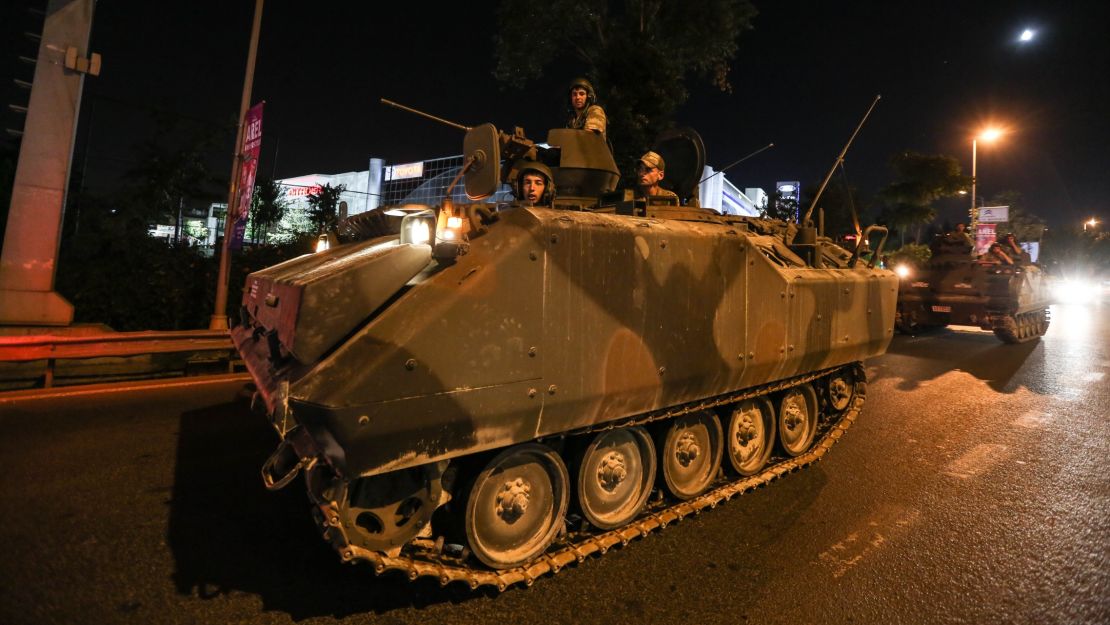
In addition to mass arrests, Turkish authorities have fired or suspended at least 81,494 people from various institutions, including some from state-run organizations, said Turkish PM Binali Yildirim according to Andalou. Among those affected:
- 42,767 people in the Ministry of Education including 21,738 suspended government workers and 21,029 public staff education members
- 8,777 Ministry of Interior personnel
- 2,745 judges and prosecutors have been listed for detention
- 3,000 soldiers – including 87 generals
- 1,577 university deans have been asked to resign
- 1,389 military personnel from the Turkish Armed Forces
- 3,672 officials removed in the Presidency of Religious Affairs
- 673 staff members at the Ministry of Food, Agriculture and Stockbreeding
- 599 officials from the Family and Social Policies Ministry
- 560 Ministry of Science, Industry and Technology personnel
- 529 Ministry of Transportation officials
- 500 officials at the Ministry of Finance
- 300 Ministry of Energy and Natural Resources staff
- 300 TRT employees
- 257 officials removed from duty in the Prime Minister’s Office
- 265 Ministry of Youth and Sports workers
- 262 military judges and prosecutors
- 221 officials Ministry of Forestry and Water Affairs
- 211 Turkish Airlines contracts have been terminated
- 184 Ministry of Customs and Commerce officials
- 180 Ministry of Labor and Social Security personnel
- 167 staff members at the Ministry of Environment and Urbanisation
- 110 Ministry of Culture and Tourism employees
- 100 Turkish intelligence service personnel
- 86 people removed at the Banking Regulation and Supervision Agency
- 86 staff dismissed at Ministry of Foreign Affairs including removal of Central Ambassadors Gurcan Balik and Tuncay Babali
- 82 Development Ministry workers
- 51 people at the Istanbul Stock Exchange while 36 have been terminated at the Capital Market Council
- 36 Energy Market Regulatory employees
- 29 Radio and Television Supreme Council workers
- 22 employees at the Housing Development Administration of Turkey
- 21 Turkish Statistical Institute workers
- 15 Ministry of Economy staff members
- 2 general directors, 1 deputy director general, and 5 department heads at Treasury
Related: Could NATO unravel next?
2,000+ institutions shut down
Turkey has closed more than 2,000 institutions they say are linked to Gulen.
What now?
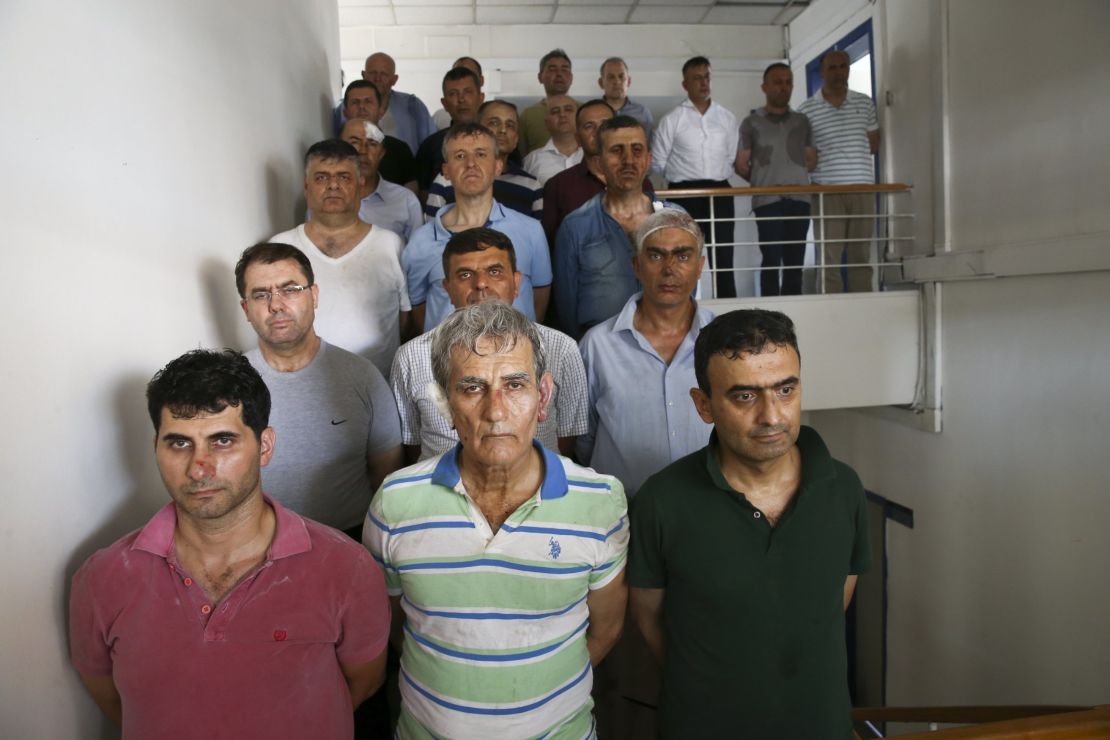
Suspects can be detained for up to 30 days without charge under a new presidential decree issued in the wake of the foiled revolution. The directive also allows the government to listen in on all conversations suspects have with their legal representation. A state of emergency has also been sanctioned.
Allegations of torture and rape of coup plotters have also emerged, according to human rights groups. Amnesty International says detainees face grim conditions including beatings, lack of access to food, water and lawyers amid calls for independent monitors to assess conditions.
While Erdogan’s forceful rhetoric post-coup has indicated that those who plotted against him could face the death penalty, presently that is not an option. Capital punishment for peacetime crimes was outlawed in Turkey in 2002. The death penalty was completely abolished two years later as part of wider human rights reform in the country.
Turkey continues to push for entry into the European Union, but following the president’s comments, EU foreign policy chief Federica Mogherini made it clear any move to reintroduce capital punishment would stall these discussions.
CNN’s Gul Tuysuz as well as journalists Isil Sariyuce and Nimet Kirac contributed to this piece.



































